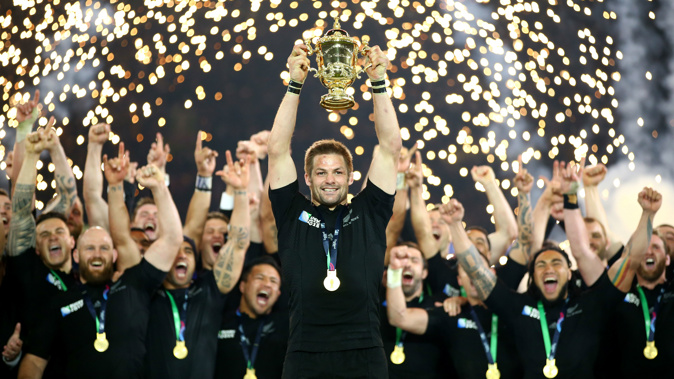TVNZ and Spark confirmed they had won the right to broadcast next year's Rugby World Cup, and Moutter said work would now begin on pricing packages, as well as deciding what content would be paid and what would be free-to-air.
This would be announced closer to the event.
"Typically in a big sports event like this you would have a tournament pass where you have all the content for a one-off fixed price," Moutter said.
"Ballpark for the tournament, we're thinking about $100, maybe a bit more, maybe a bit less.
"If you compare that - one ticket to an All Blacks game last year in the Lions tour was $149 for the lowest price ticket, so to watch 48 games, $100 is pretty good."
Customers would also have the option to buy individual games or, for example, only All Blacks games for a set price.
All of the content would be available across any device, with all games in a catalogue on a screening app meaning customers wouldn't need to record matches, but could pick and choose when they wanted to view.
"True TV on demand," Moutter said.
Getting New Zealanders to watch the content online could, however, pose a challenge to Spark and TVNZ.
Earlier in the year when asked for his views on the digital paywall, Sky TV chief executive John Fellet referred to the recent example of the Joseph Parker fight.
He said that of those who paid for the fight, only 10 per cent watched the content online while the rest still relied on the traditional broadcast option.
Customers paid $49.99 to view the fight.
The high levels of streaming during the Commonwealth Games suggest that New Zealanders are becoming increasingly comfortable with online viewing, but Spark will still have a big job to do in convincing sceptical Kiwis that online platforms can deliver a viewing experience comparable to a traditional broadcast.
Asked about the network's capability to handle the demand, Moutter said, "we wouldn't have made a bid if we weren't sure we could deliver".
The deal means TVNZ will screen seven Rugby World Cup matches live – including the tournament's opening match and the final – the same number offered free-to-air in 2015.
A yet-to-be-confirmed number of delayed matches will also screen. There will be no ads during live game time, TVNZ said. There will, however, be ads at halftime and before and after games.
"I'll let my marketers do the work on [pricing]," Moutter said.
"They will set up focus groups and work with customers to figure out what sort of packages customers want and what price points will work, and we'll use that to inform a decison."










